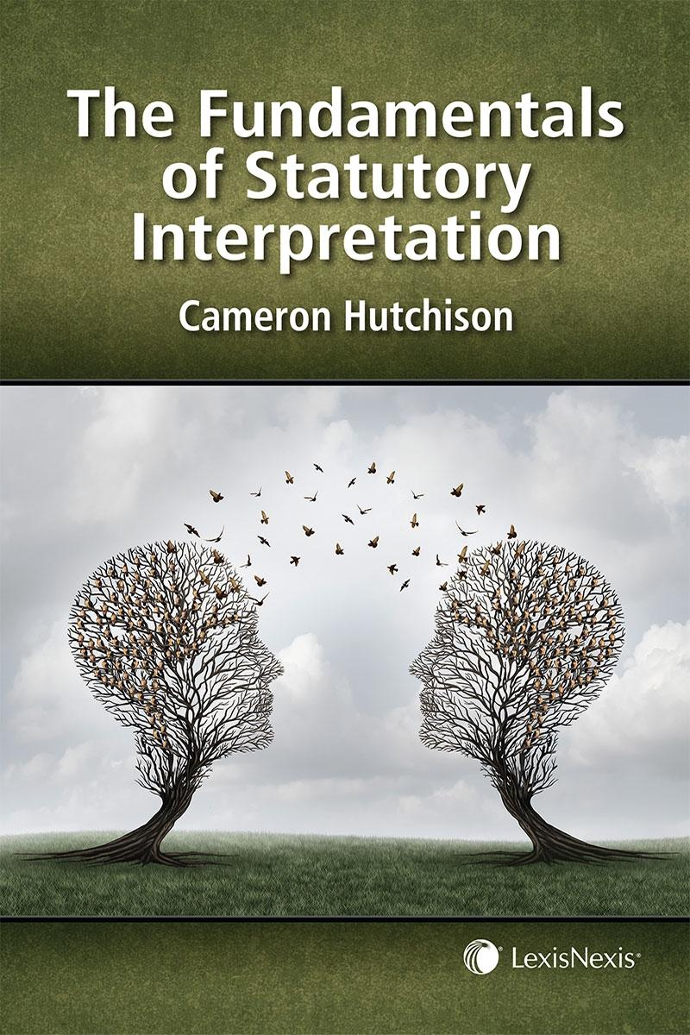
Cameron Hutchison, a law professor at the University of Alberta who specializes in statutory interpretation, has written a comprehensive guide to the process that Canadian courts do and should follow when they interpret statutes.
In The Fundamentals of Statutory Interpretation (Lexis Nexis 2018), Hutchison begins by explaining why laws require interpretation by judges.
"Rules are incomplete, mostly because language is imprecise and/or statutes are being applied to cases that weren't anticipated by the legislators," he said. "When rules are incomplete, understanding why that is so helps us to set parameters around how interpretative discretion should be exercised."
Since 1974, Canadian courts have officially interpreted laws by following the "modern principle," created by Elmer Driedger, a former deputy minister of justice and renowned law scholar. It states that interpretation should take a holistic view - judges should consider not just the literal meaning of a statute's words but also the historical intent of the legislators and the ultimate purpose they were trying to achieve.
However, after a decade of researching and teaching statutory interpretation, Hutchison has observed that the modern principle is applied in ways that are oblivious to the nature of the interpretive problem and without any sort of firm analytical framework.
"The modern principle is a wise approach to interpretation, although it needs to be analytically refined into two inquiries," said Hutchison. "The first question is to determine a legislative intent, using all facets of the principle. When that yields an ambiguous answer, courts should pragmatically develop the law in a way that accords with the general policies of the legislation."
Hutchison's book examines the facets of the modern principle in detail, including separate chapters on text, context, intention and purpose. Foundational issues, such as why statutes require interpretation and the role of the judiciary, are also addressed. Bonus chapters on temporal application, judicial review of administrative interpretations (by UAlberta Law professor Matthew Lewans), and constitutional interpretation (by UAlberta Law professor Eric Adams) are included.
"I am really very grateful that two of my colleagues at the Faculty, both leaders in their respective fields, made their chapter contributions," said Hutchison.
He hopes the book will be a resource for litigation lawyers, law students, judges and tribunal members, and especially for those who do not deal regularly with questions of interpretation. "It provides a road map for analyzing a statutory interpretation problem and guides you through the process," he said.